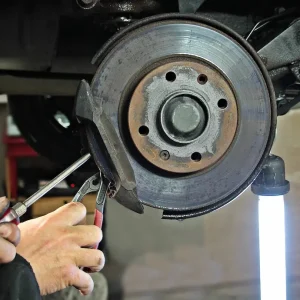Scott Norville is the first to admit that Silverstone Fleet Management’s whole working pattern has changed since the pandemic.
He says: “Rather than have fixed working hours, it has enabled us to offer greater flexibility around staff members working from home or different hours of work.
“We’ve also found our clients have changed because the trends surrounding what people are looking for and buying patterns have shifted. Before, people wanted a short-term contract but now it’s long term.
“A lot of our customers are working from home and although people still need cars, their mileage has changed. The average was 12,000-15,000 miles a year, but now they don’t need that travel allowance. When you’ve got a car with less mileage, you don’t need to change it as regularly.
“I think because the team aren’t working from home and we are all together in the office, our customers aren’t passed from pillar to post. It enables us to provide a more efficient service for our clients.
“Our five-star customer reviews prove the excellent level of service we provide. As well as streamlining a lot of our processes, we’ve introduced a new Track My Car portal system, which allows customers to log on and track the status of their vehicle. This has been very well received by our customers and embraced by our staff. We utilise technologies to improve
team efficiency.”
Yet, despite lockdowns, businesses downsizing and the resulting redundancies, Norville tells us that orders for fleet cars have increased.
“Demand has increased because of two factors,” he says. “One is that when lockdown happened, a lot of people weren’t spending money, so they had a huge amount of disposable income. That in turn, gave us a massive rush of business when doors reopened. A lot of companies brought their buying decisions forward, implementing getting a new car quickly.
“Because demand was so high for new car purchases, we then stumbled into the semiconductor shortage. Semiconductors were used heavily during lockdown for entertainment purposes, but that’s caused a massive knock-on effect in the automotive industry.
“Factories were being closed and that had another knock-on effect. When everything restarted, manufacturers couldn’t meet demand and that has been a massive issue that we are still struggling with.”
When discussing the chip crisis, he believes the most important thing is to be transparent and honest with customers. “In the first instance, we tell them the true status of the vehicle and manage their expectations. We don’t take the order and then worry about what we tell the customer. That transparency and involvement is there from the start.
“However, there’s a lot of scaremongering around. We’ve been told previously that there’s a 12-month lead time, but we’ve received cars in three to four months. It is about working very closely with funding partners and dealers to get firm updates that we can share with
the customer.
“There are businesses out there who promise a delivery date that they can’t adhere to. They win the business but then the customer is let down. Giving out the right information at the right time has been the best tool for us, so customers can make the right decisions.
“Our advice for fleets looking to change in 2022 is to start looking now. Some of the vehicles have 12-month lead times, so now is the perfect time to have that conversation and see what can be done to fulfil your needs.”
It is not just the pandemic that’s changed Silverstone Fleet Management, there’s also the improved choice of EVs to consider.
Norville says: “I can safely say that 80% of our business is now EV, so it has increased the orders we receive, because of the vast choice now available. It gives customers many more options for their next car.
“Primarily with EV, when they were first in the market, they were £600-800 per month. Now we are looking at £200-300 per month for an EV. Smaller city EVs are more
price sensitive.
“There’s definitely more confidence in the marketplace. I think the more chargers out there, the more likely it is that people will opt for electric vehicles. It has always been a grey area for customers, with limited or broken charge points, or non-EVs parked in EV charging spots, and there has been a reluctance to make the leap. Having more charging points and better infrastructure in the marketplace is improving customer confidence.
“We partner with Pod Point, one of the largest suppliers of electric chargers. Being affiliated with them gives us more flexibility and knowledge on electric chargers, which means we can order your car and advise on your charger.”
This confidence in EVs is resulting in more consultation meetings with prospective businesses for Norville and Silverstone over the past six to eight months. “These are the businesses getting a feel for implementing EV in their workplace, which coincides with looking at installing chargers in the workplace and investigating the money that can be saved by using EV. We are starting to see that trend more and more now, and see interest in EV of all sizes.
“There are still businesses out there who don’t understand, but it is our job to get the word out there and educate people before 2030. Personally, I’m not sure that we will be able to get the infrastructure in place by then, but we’ll see.”





